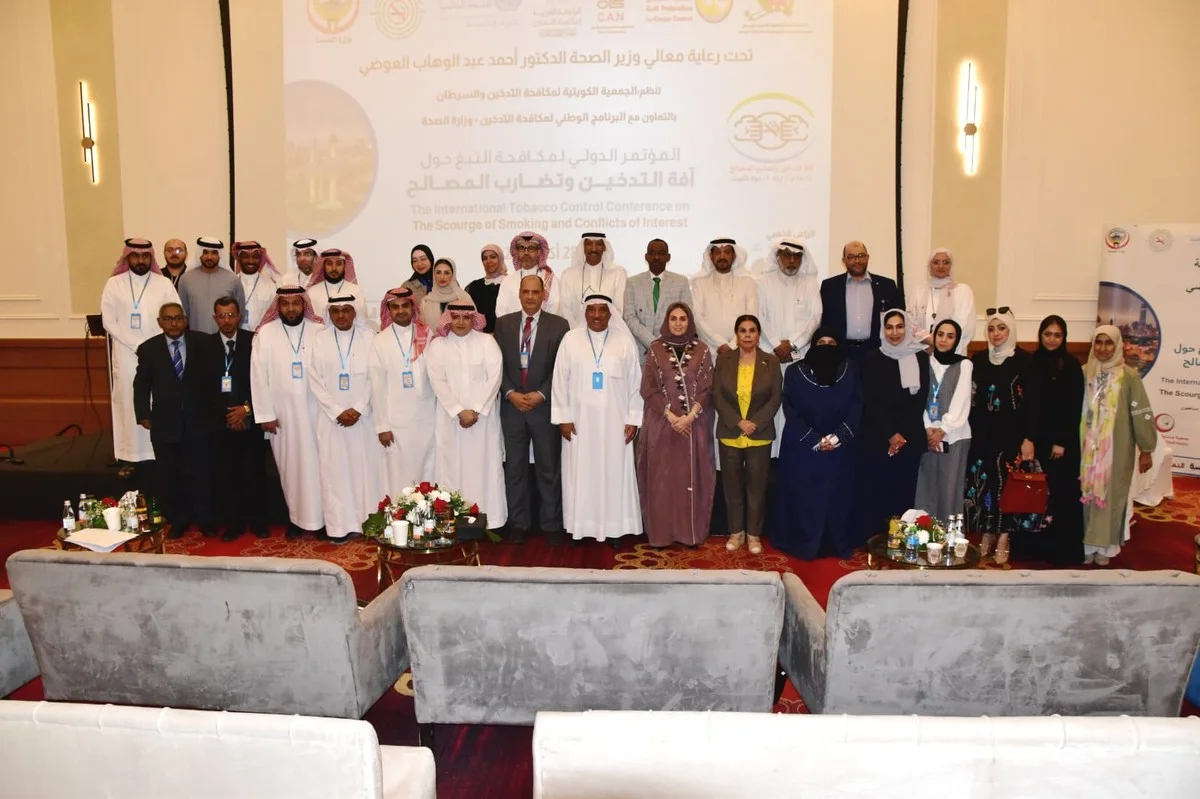30/10/2024
30/10/2024

KUWAIT CITY, Oct. 30: The International Conference on Tobacco Control participants have called on Gulf Cooperation Council (GCC) countries to establish national observatories dedicated to monitoring the tobacco industry and its affiliates. These observatories would evaluate industry tactics, activities, and influence, conducting regular research aligned with World Health Organization (WHO) standards.
Dr. Khaled Al-Saleh, the conference chairman and head of the Kuwait Society for Combating Smoking and Cancer, announced Tuesday that the conference, held over the previous two days, recommended that all individuals involved in tobacco control across the GCC sign a disclosure and non-conflict of interest document to enhance transparency in the field.
According to Al-Saleh, the conference urged the Gulf Health Council to initiate advocacy-building programs that bolster member states' capabilities in conducting litigation and investigations against tobacco companies. Additionally, the conference called for establishing professional national task forces to legally pursue tobacco companies and their associates, in partnership with WHO and expert institutions.
Among other key recommendations, the conference advocated for programs to increase awareness among decision-makers, policymakers, and stakeholders. Revisions to current policies, legislation, and regulations across the GCC were also recommended to address emerging tobacco products, including alternatives such as nicotine pouches.
The conference further advised increasing the selective tax on tobacco products to the WHO’s recommended 75 percent level and called on the Gulf Health Council and the WHO Eastern Mediterranean Office to organize training courses focused on preventive program planning and awareness campaigns.
In its strategic recommendations, the conference highlighted the value of artificial intelligence in designing cessation and awareness initiatives, program monitoring, and research. It also proposed forming a regional coalition to unite civil society organizations and associations working on tobacco control throughout the GCC.
On a broader regional level, Al-Saleh noted that the conference also recommended an Arab-wide initiative, urging government bodies, private institutions, and civil society groups to collaborate on smoking awareness campaigns and to outline a timeline for implementing these efforts.
The conference called on the League of Arab States to commission a study on the adverse health and environmental effects of smoking, with funding support from environment ministries across the Arab region.
Finally, the conference recommended incorporating stronger measures against tobacco companies in the agenda for the high-level global meeting on noncommunicable diseases in September 2025. These measures would promote the commitment of heads of state, reinforce restrictions on tobacco advertising, and include media training to more effectively address tobacco-related public health concerns.


